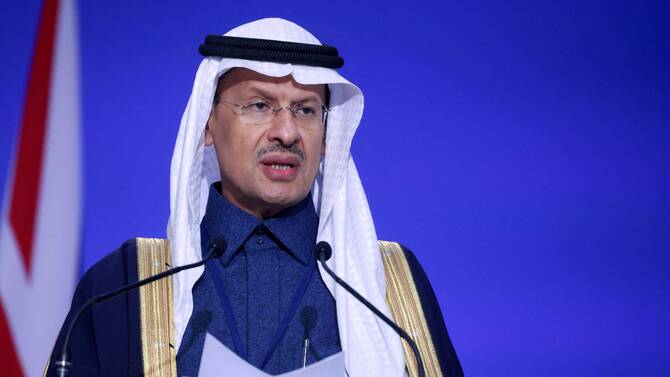KARACHI: Pakistan’s stock and currency markets on Wednesday celebrated the “larger than expected” $6 billion bailout offer from Saudi Arabia to stabilize the country’s economy which is currently facing severe account imbalances.
The Saudi rescue package gave a historical push to Pakistan's stock market’s benchmark KSE 100 index which rose by 1,556 points or 4.13 per cent, while the rupee appreciated by Rs1.56 to Rs132.35 against the US dollar. The gold market recorded a decline of Rs1,000 per tola (approximately 12 grams).
“Pakistan’s stock market today recorded the highest surge in a single session in its entire history thanks to the Kingdom of Saudi Arabia’s much-needed support of $6 billion,” Mohammed Sohail, CEO of Topline Securities, told Arab News, adding that Saudi’s cash and deferred oil facility is far larger than expectations.
“This will provide the much-needed support to Pakistan’s worsening external account position,” he said.
Pakistan and Saudi Arabia signed an agreement on Monday based on which the Kingdom will lend Islamabad $3 billion for a period of one year. “Saudi Arabia’s offer has eased pressure on the currency market which has experienced an appreciation of the rupee from Rs134 to Rs132.80 against the dollar,” Malik Bostan, President of Forex Association, added.
Both countries also agreed that a one-year deferred payment facility for the import of oil -- up to $3 billion -- will be provided by Saudi Arabia. This arrangement will be in place for three years, which will be reviewed thereafter.
“The facility of deferred payment of around $3 billion at current price is a big relief to ease pressure. Thus, out of the total annual net external funding requirements of $12 billion, now Pakistan needs to take care of the remaining $6 billion,” Dr Ikram Ul Haq, an expert on economic and legal matters, said.
He added that Saudi’s offer has “put Pakistan in a much better position to deal with the IMF”,
Khurram Shehzad, a senior financial expert, agrees. “Pakistan imports 110,000 bbl per day crude from Saudi Arabia. As per estimates, this should result in a total deferred oil payment of around $3 billion in a year at current price which places Pakistan at a much more comfortable position,” he said.
To tackle its severe balance of payment crisis, Pakistan approached the IMF for a bailout package recently, with the financial body saying that it would dispatch a team early next month to negotiate the conditions for the loan.
However, Dr Ashfaque Hassan Khan, member of the Economic Advisory Committee, rejected the idea of approaching the IMF following the developments. “Country’s financing needs are only $7 billion to $7.50 billion. The figures of $12 billion financing gap are old and do not reflect the country’s current requirements. We do not need to go to the IMF,” he said.
PM Khan is scheduled to visit China next month and while the Saudi offer is expected to boost Islamabad’s confidence, it may also help secure some financing from Beijing as well.
“This infuses some solid confidence in the Pakistani delegation’s next visit to China. If that also yields same results, say an immediate $5 billion but under investment/trade facility commitment instead of loans, it should put the country in a very comfortable position,” Shehzad said.











